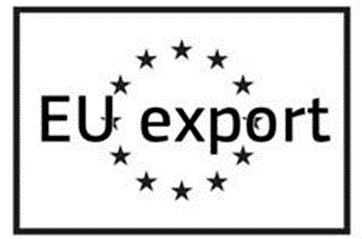SPC Manufacturing Waiver
With the entry into force of Regulation (EU) 2019/933 on 1 July 2019, the EU introduced a so-called “manufacturing waiver” by amending existing Regulation (EC) 469/2009 concerning supplementary protection certificates (SPCs).
Scope of the manufacturing waiver
The amendments to the existing SPC Regulation have excluded certain acts from the protection conferred by SPCs.
In particular, a third party (referred to as a “maker”) is permitted to manufacture a medicinal product protected by an SPC for the exclusive purpose of export to countries outside the EU1.
The rights of manufacture include authorisation for ancillary activities which are “strictly necessary” to enable the manufacture and export of the product. These include, for example, the importation of API into the EU to enable the preparation of a formulated medicinal product and the temporary storage of product or medicinal product within the EU for the exclusive purpose of export to countries outside the EU. Rights will also extend to contract manufacturing organisations and distributors acting on behalf of the party which is exporting the medicinal product.
In addition, for the final six months prior to SPC expiry, the right to manufacture extends to manufacture for stockpiling in the country of manufacture for release on to the market in the EU upon SPC expiry2.
Requirements for the maker to benefit from the waiver
The Regulation imposes some formal requirements on any maker seeking to take advantage of the waiver. In particular:
- an obligation to notify certain information,
- the requirement to use an EU export logo, and
- the requirement to inform contractors that acts other than those covered by the waiver might infringe the SPC.
These requirements are discussed further below.
Notification
The Regulation imposes an ongoing obligation to notify the national patent office and the SPC holder of specified information no later than three months before the start date of manufacture in the member state, or no later than three months before the first related act prior to that making, if earlier. The notice must specify:
a. the name and address of the maker,
b. an indication of whether the making is for the purpose of export and/or storing,
c. the member state where the making and, if applicable, the storing is to take place, and the member state where the first related act prior to that is to take place,
d. details of the SPC in the country of making and the country of the first related act prior to making, and
e. for medicinal products to be exported to third countries, the reference number of the marketing authorisation in each country of export as soon as it is publicly available. Failure to comply in respect of a country of export means that exports to that country do not benefit from the waiver.
Any changes in the above details must be notified to the national patent office and certificate holder before the changes take effect. The information together with the date of notification and any changes shall be published by the national patent office as soon as possible. Member states may impose a fee for the notification.
The maker does not need to provide information on the specific manufacturing location or on the timing of intended manufacture. Consequently, despite the fact that national patent offices can apply a fee to notifications, it is possible that “makers” with no concrete plans to manufacture will file precautionary notifications in case they want to manufacture in the future. As a result, it may be difficult for the SPC holder to identify which makers will in fact enter the market for export and/or stockpiling, and when.
Export logo
The maker must ensure that the following logo is affixed to the outer packaging of the product or medicinal product. Where feasible, the logo should also be affixed to the immediate packaging.

Information to contractors
The maker must ensure that any third party contracted to carry out “strictly necessary” related acts is fully informed and aware that those acts are subject to the conditions for application of the waiver (including the export only condition). The third party must be informed that placing on the market (other than by the maker in a notified non-EU export country), import or re-import of the product might infringe the SPC.
Transitional provisions
The new Regulation came into force on 1 July 2019. The following transitional provisions apply.
- An SPC granted and in force prior to 1 July 2019: the waiver does not apply.
- An SPC granted on an SPC application filed on or after 1 July 2019: the waiver applies.
- An SPC granted on an SPC application filed prior to 1 July 2019, but where the SPC is not in force until on or after 1 July 2019: the waiver only applies to any term remaining from 2 July 2022.
Footnotes
- For non-EU states: Corresponding legislation should be enacted in the EEA member states (Norway, Iceland, Liechtenstein). In the UK, the waiver was adopted pre-Brexit and will be maintained post-Brexit for export outside of the UK and the EU. Switzerland has no plans to introduce a waiver.
- Post-Brexit, it is possible to stockpile in the UK for release onto the market in the UK or the EU.
